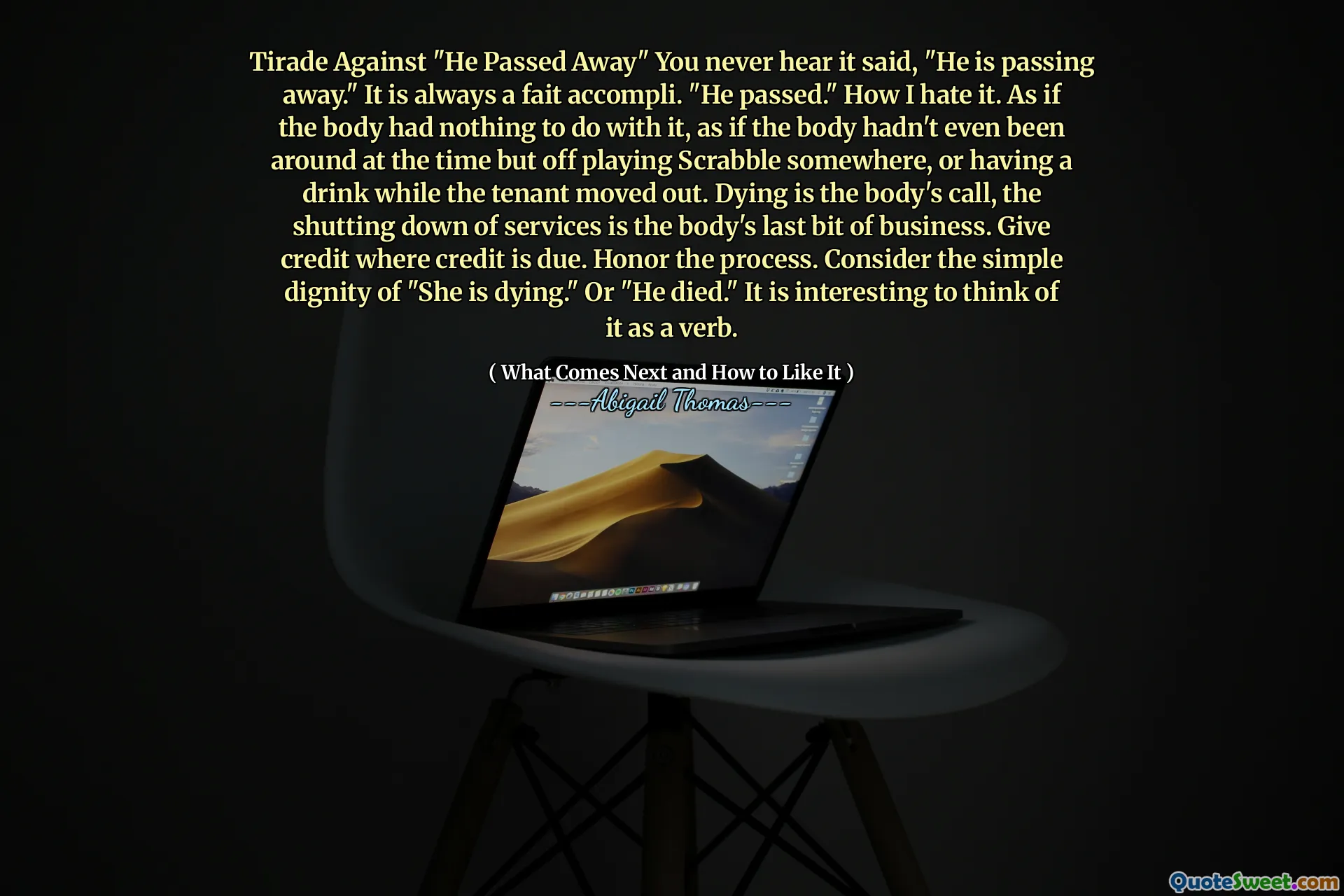
Tirade Against "He Passed Away" You never hear it said, "He is passing away." It is always a fait accompli. "He passed." How I hate it. As if the body had nothing to do with it, as if the body hadn't even been around at the time but off playing Scrabble somewhere, or having a drink while the tenant moved out. Dying is the body's call, the shutting down of services is the body's last bit of business. Give credit where credit is due. Honor the process. Consider the simple dignity of "She is dying." Or "He died." It is interesting to think of it as a verb.
This quote vividly explores the language we use surrounding death and highlights the importance of acknowledging the physical and emotional reality of dying. There's a subtle yet profound critique of the euphemistic tendency to soften or obscure death's true nature. Phrases such as "passed away" or "passed" can diminish the gravity of death, making it seem like a distant event detached from the corporeal experience. When the language shifts to present continuous or more active forms like "she is dying," it invites us to recognize death as a process, a series of biological and existential events rather than a finality that erases the body's role. Conflating death with a mere transition, or treating it as something that simply happens outside of the physical body’s involvement, risks stripping away the dignity and gravity of the act. Recognizing dying as an active process—something that the body does—could offer a more compassionate understanding and acceptance. It encourages us not to shy away from acknowledging mortality but to instead embrace it as a natural, and indeed respectful, part of life. In western culture, there’s often a reluctance to confront death directly, relegating it to euphemistic terms that can sometimes feel dismissive. This quote advocates for honest, respectful language that honors the reality and dignity of dying, fostering a more genuine relationship with mortality, and possibly providing comfort through acknowledgement rather than avoidance.








